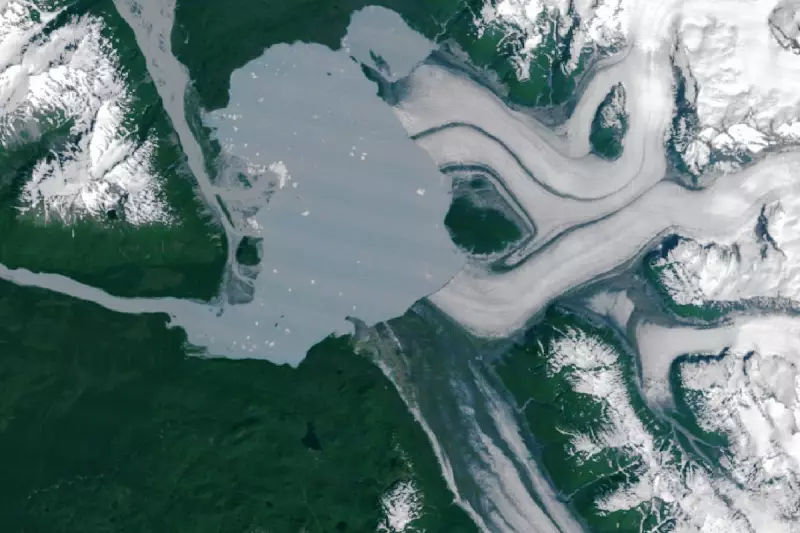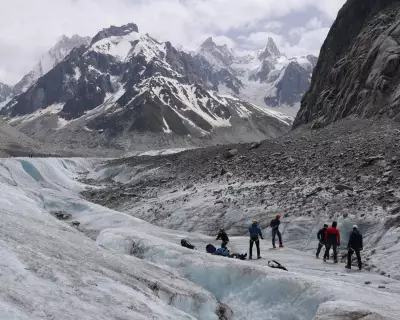
A catastrophic glacial flood has radically transformed the Alaskan landscape, obliterating an entire island in a violent display of nature's power fueled by climate change. The event, originating from the rapidly deteriorating Alsek Glacier, serves as a dire warning of the accelerating environmental shifts in the region.
The Devastating Event: An Island Erased
Scientists monitoring the area witnessed a staggering phenomenon: a colossal outburst from a glacier-dammed lake sent a torrent of water and ice coursing through the Alsek River. The force was so immense that it completely scoured Isla de Gracia (Island of Grace) from the map, leaving no trace of the landmass behind.
The Driving Force: A Retreating Glacier
At the heart of this disaster is the significant and rapid retreat of the Alsek Glacier. As the glacier melts, it fills a basin known as Alsek Lake. Once the water pressure becomes too great, it breaches the icy dam, resulting in a powerful and unpredictable Glacial Lake Outburst Flood (GLOF). This recent event is one of the largest and most destructive on record.
A Landscape Reshaped Overnight
The floodwaters didn't just destroy the island; they fundamentally altered the entire river delta. The channel's course has been dramatically redirected, and the sediment once held by Isla de Gracia has been swept away, reshaping the coastline and impacting the local ecosystem. The sheer power of the event underscores the volatile new reality of glacier-fed systems.
A Stark Climate Change Warning
This incident is not an isolated event but a direct consequence of a warming planet. The increasing frequency and volume of these glacial outburst floods are a clear indicator of the accelerating melt rates in Alaska and British Columbia. Researchers point to this event as a potent example of how climate change is actively and violently rewriting geography.
Looking Ahead: Monitoring and Concern
While the Alsek River has returned to its banks, the landscape is permanently scarred. Scientists continue to monitor the unstable Alsek Glacier closely, concerned that as warming trends continue, such catastrophic flooding events could become more common, posing ongoing risks to the environment and any future infrastructure in the region.





